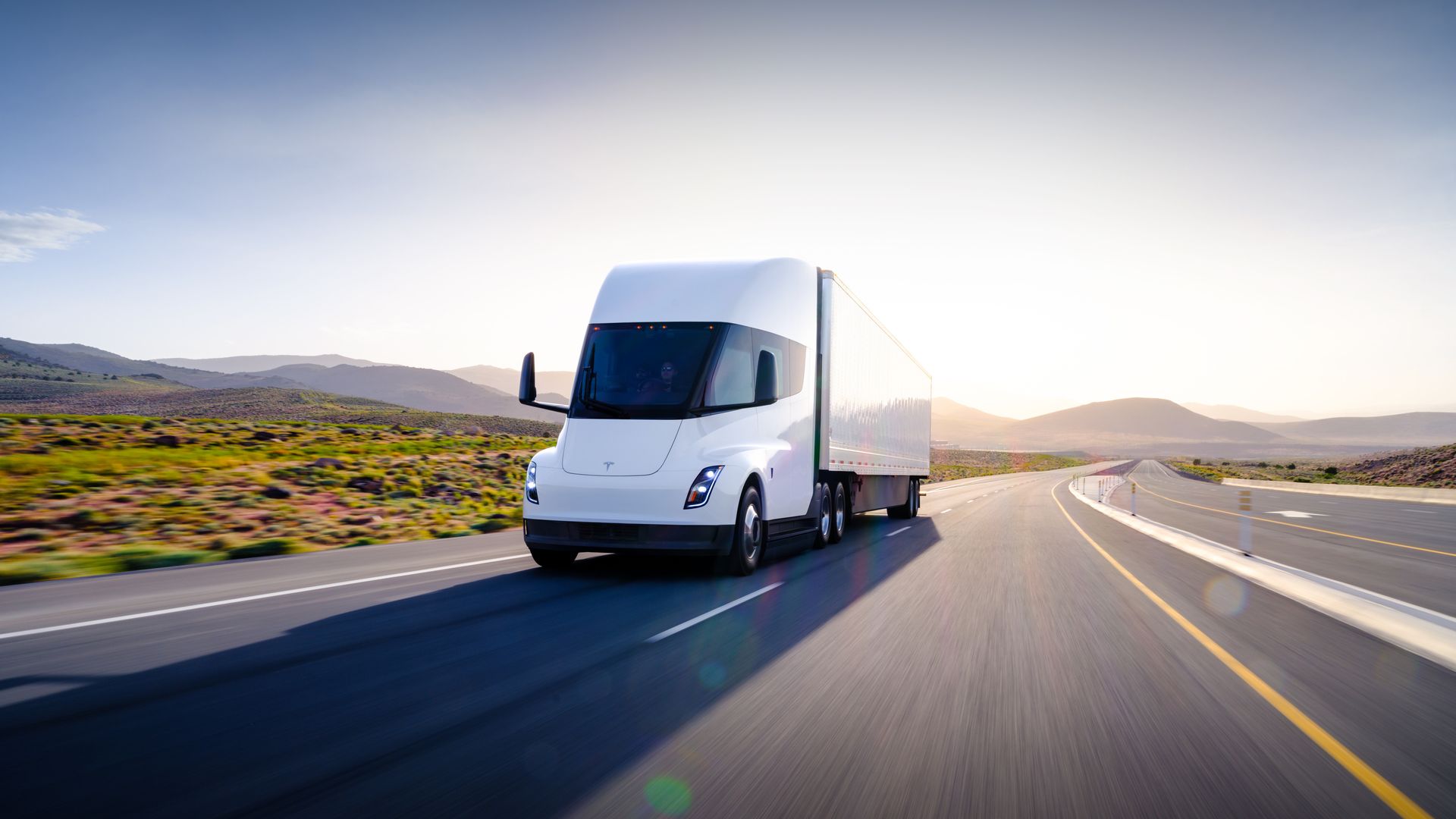Tesla Semi to put EV heavy trucks to the test
Add Axios as your preferred source to
see more of our stories on Google.

The Tesla Semi, an electric truck. Photo: Tesla
Half a decade after Elon Musk first revealed it, the Tesla Semi is poised to reach its first customers before the end of the year.
Why it matters: The rollout will launch a real-world validation process, testing whether electrification is well-suited for heavy trucks, which mostly run on diesel fuel.
- If it works, it could pave the way for more sustainable transportation, transitioning loud, emissions-spewing trucks into quiet, zero-emission haulers.
Driving the news: Musk said late Thursday on Twitter that Tesla Semi production is beginning and that the first units would be delivered to PepsiCo on Dec. 1.
- The first version will have a battery-powered range of 500 miles and will be "super fun to drive," Musk says.
- PepsiCo confirmed that it expects to take delivery of Tesla Semis on Dec. 1, adding that the trucks will be supporting its Frito-Lay plant in Modesto, California, and its beverages plant in Sacramento.
Flashback: It's been nearly five years since Musk first unveiled a Tesla Semi prototype at an event in California, claiming at the time that it would begin production in 2019.
- It's three years late, though the pandemic's disruption of operations and supply chains might be partially to blame.
The big question: Will customers embrace the technology?
- When Musk first revealed the truck, the company received 10,000 preorders from customers such as Walmart, Pepsi, Anheuser-Busch and FedEx, according to Autonomy, an EV subscription company.
- Longer routes are more challenging for EV trucks because they will require more frequent charging, which is costly downtime that diesel-powered trucks don't have to deal with.
- But "you’ve got a customer base that doesn’t need to deploy these trucks into long-haul trucking," Autonomy CEO Scott Painter tells Axios. "There's a whole range of needs that include local delivery as well as medium range."
Be smart: EV semis now qualify for a tax credit of up to $40,000 through the Biden administration's Inflation Reduction Act, making them even more appealing.
Yes, but: The cost could still be prohibitive for a while — and supplies of batteries are limited, which will likely put an indefinite cap on production capacity.
- At one point, Tesla listed a starting price of $150,000 for the Semi, though it's unclear whether that's changed as the cost of lithium — a key component in batteries — has spiked.
The bottom line: The Tesla Semi looks good on paper, but it needs to deliver practical advantages over diesel trucks to accelerate adoption.
